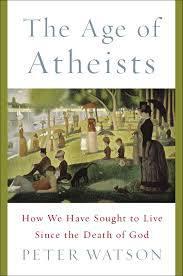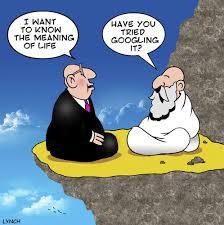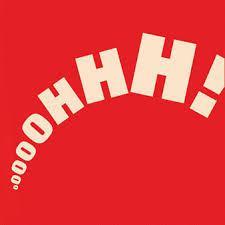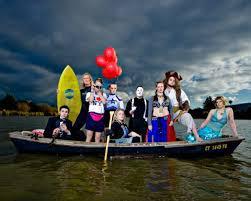 The other day I presented a review, at the Albany Public Library, of Peter Watson’s book, The Age Of Atheists: How We Have Sought to Live Since the Death of God. For the full text of the talk, click here. And here is the concluding bit (slightly edited):
The other day I presented a review, at the Albany Public Library, of Peter Watson’s book, The Age Of Atheists: How We Have Sought to Live Since the Death of God. For the full text of the talk, click here. And here is the concluding bit (slightly edited):
So how does one live without God? This book doesn’t give a single answer. But I will give you my humanist summation.
First of all, to read this book, you might think we’re obsessed over the meaning of life. But what life is mostly about is going to the store, washing the dishes, working at your job, gossiping about the foibles of other people, and so forth. God or no-God doesn’t enter into any of that. I believe the true meaning of life is in what we actually spend most of it doing. And you can live it just fine without ever pondering some deeper meaning.

Watson quotes Dawkins: “do any of us really tie our life’s hopes to the ultimate fate of the cosmos anyway?” And I’ll add a line from Viktor Frankl, who wrote Man’s Search For Meaning: “What matters is not the meaning of life in general, but the specific meaning of a person’s life at a given moment.”
And there is no deeper meaning; there is no transcendent aspect to existence; no cosmic purpose. Only the purposes that we as individuals choose.
In doing so, we must ask ourselves: What really matters? Now, you can come up with a lot of answers, but they all finally boil down to one thing: the feelings experienced by beings capable of feeling. Nothing can ultimately matter except insofar as it affects such feelings. You might say, for example, that the health of the planet matters. But why so, if there were no feeling beings affected? Without them, even the existence of the universe wouldn’t matter. Who would it matter to?

True, life is limited. But that makes it all the more precious. What being dead will be like is hard to grasp, but I prefer to ponder over what being alive is like. And I don’t take it for granted; there was no cosmic necessity that I should exist at all; I consider it a supreme gift.
We live in hope and striving for a better world, a more inclusive community, with more liberty and justice, more happiness and less pain.

That gives us all the meaning and purpose we need.
